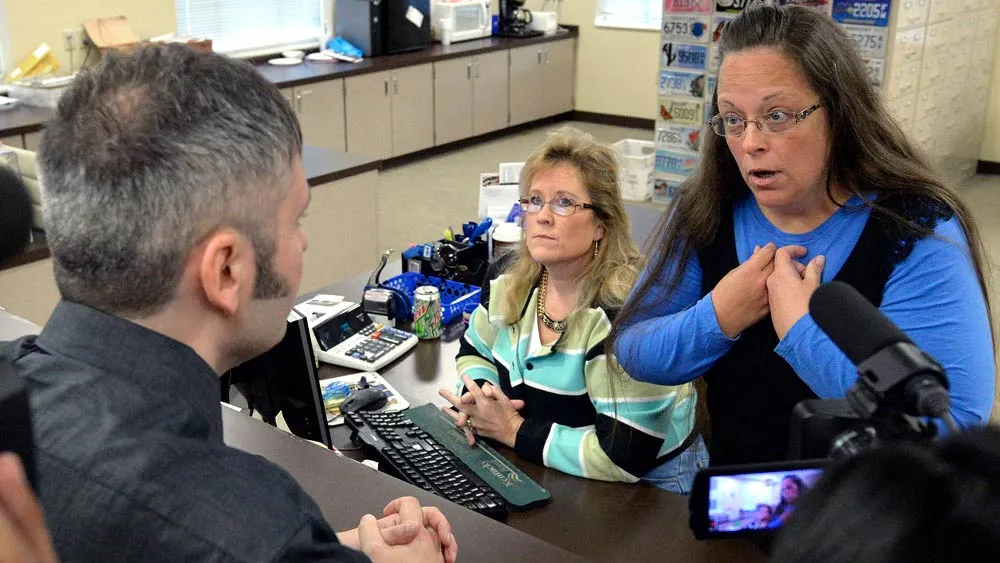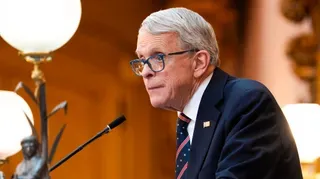June 13, 2013
Survey Offers Complex Portrait of LGBT Americans
Jason St. Amand READ TIME: 4 MIN.
Even as they acknowledge greater acceptance by society, lesbian, gay, bisexual and transgender Americans are, on average, less happy than other U.S. adults, and many report instances of rejection and harassment, according to a sweeping new survey.
The survey, released Thursday by the Pew Research Center, is one of the largest and most detailed ever conducted among LGBT respondents by a major U.S. polling organization.
It was conducted April 11-29 among a national sample of 1,197 adults who had previously identified themselves as lesbian, gay, bisexual or transgender. It was administered online, a survey mode that Pew says produces more honest answers on sensitive topics than less anonymous methods.
"What we find is that for LGBT Americans, these are the best of times, but that doesn't mean these are easy times," said Paul Taylor, the Pew Center's executive vice president. "Many are still searching for a comfortable place in a society where acceptance is growing but remains limited."
The survey's findings - released as gay-rights supporters await U.S. Supreme Court rulings this month on same-sex marriage - reveal an intriguing mix of outlooks and experiences.
For example, 92 percent of the respondents say society has become more accepting of them in the past decade, and an equal number expect even more acceptance in the decade ahead.
Yet 39 percent said that at some point they were rejected by a family member or close friend because of their sexual orientation; 30 percent said they had been physically attacked or threatened; 29 percent reported feeling unwelcome in a place of worship; and 58 percent said they'd been the target of slurs or derogatory jokes.
Compared with the general public, the LGBT respondents are more liberal politically, less religious and less happy with their lives. Only 18 percent of LGBT adults describe themselves as "very happy," compared with 30 percent of all adults.
Additionally, their family incomes were lower than average, which Pew said could be linked to the smaller size of their households and the fact that the LGBT respondents were younger, on average, than adults overall. Only 20 percent of the survey respondents reported family incomes of more than $75,000, compared to 34 percent for the general public, while 39 percent of the LGBT adults reported family income of under $30,000, compared to 28 percent of all adults.
The survey illustrated how religion is problematic for many LGBT adults. A large majority of respondents described the Mormon Church, the Catholic Church, evangelical churches and Islam as unfriendly toward LGBT people. Views of Judaism and mainline Protestant churches were mixed.
Forty-eight percent of the respondents said they had no religious affiliation, compared with 20 percent of the general public. Of the LGBT adults with religious affiliations, one-third said there is a conflict between their religious beliefs and their sexual orientation.
Survey respondents were asked about their decisions regarding how and when to tell others about their sexual orientation. About 56 percent said they had told their mother and 39 percent have told their father; most who did tell a parent said it was difficult, but relatively few said it damaged the relationship.
The poll found gay men and lesbians were far more apt than bisexuals to have told important people in their life about their sexual orientation.
Without giving their names, Pew quoted several respondents discussing their own coming-out experiences.
"I wish I would have told people sooner," said a 43-year-old man who first told someone about being gay when he was 22. "I wasted too many years being afraid of my sexuality and making choices that allowed me to hide in the background of life."
A 58-year-old woman recalled that two of her friends shunned her after she told them, as a 17-year-old high school student, that she was a lesbian.
"That was painful," the woman said. "Everyone else has been great, and for 40-plus years I have never hesitated about or regretted being out."
The respondents surveyed by Pew included 398 gay men, 277 lesbians, 479 bisexuals and 43 transgender people - roughly reflecting the breakdown reported by demographers who have tried to quantify America's LGBT population. Pew did not attempt to estimate the share of the U.S. population that is LGBT, but noted that other recent studies have made estimates in the range of 3.5 percent to 5 percent.
Pew's survey found that lesbians are more likely than gay men to be in a committed relationship (66 percent versus 40 percent). It also found that women, whether lesbian or bisexual, are significantly more likely than men to either already have children or to say they want to have children.
According the survey, 93 percent of LGBT adults favor legalization of same-sex marriage. However, 39 percent said the marriage debate has drawn too much attention away from other issues, such as employment rights, HIV/AIDS prevention and treatment, and adoption rights.
The survey found that one in six LGBT adults - mostly bisexuals with opposite-sex partners - are married, compared with about half the adults in the general public.
Large majorities of LGBT adults and the general public agree that love, companionship and making a lifelong commitment are very important reasons to marry. However the LGBT respondents are twice as likely as other adults to say that obtaining legal rights and benefits is also a very important reason to marry, while the general public is more likely than LGBT respondents to say that having children is a very important reason.
Survey respondents were asked to name public figures most responsible for advancing LGBT rights.
President Barack Obama, who announced his support for same-sex marriage last year, was the top pick - named by 23 percent of respondents. Next, at 18 percent, was comedian and TV host Ellen DeGeneres, who came out as a lesbian in 1997. No one else was named by more than 3 percent of respondents.
The survey was administered by the GfK Group using KnowledgePanel, its nationally representative online research panel. The margin of sampling error for the full LGBT sample is plus or minus 4.1 percentage points.




